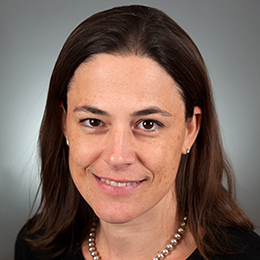
Director, Cardiovascular Genetics Research Program
Boston Children’s Hospital Associate Professor of Pediatrics
Harvard Medical School
Dr. Roberts’s early work focused on gene discovery for one of
the Rasopathies, Noonan syndrome (NS), a multiple congenital anomaly disorder
that is the second most common genetic cause of congenital heart disease in
children after Trisomy 21. Over the last 14 years, there has been a rapid
evolution in our understanding of the molecular genetic causes of Noonan
syndrome, with nine genes now identified, explaining approximately 80% of
cases. These discoveries have enabled the widespread use of next-generation
sequencing testing by clinicians for earlier and more exact diagnosis. For more
than 10 years Dr. Roberts has followed a cohort of over 200 individuals with NS
for the purpose of genotype-phenotype analysis. She has also investigated the
influence of these gene mutations on learning, memory and long-term outcomes.
This work has informed anticipatory management guidelines published for
clinicians caring for children and adults with this diagnosis.
Dr. Roberts is Director of the Cardiovascular Genetics Research Program. and is an Attending Physician in Genetics and Cardiology and sees patients at Boston Children’s Hospital.

Director, Cardiovascular Genetics Research Program
Boston Children’s Hospital Associate Professor of Pediatrics
Harvard Medical School
Dr. Roberts’s early work focused on gene discovery for one of
the Rasopathies, Noonan syndrome (NS), a multiple congenital anomaly disorder
that is the second most common genetic cause of congenital heart disease in
children after Trisomy 21. Over the last 14 years, there has been a rapid
evolution in our understanding of the molecular genetic causes of Noonan
syndrome, with nine genes now identified, explaining approximately 80% of
cases. These discoveries have enabled the widespread use of next-generation
sequencing testing by clinicians for earlier and more exact diagnosis. For more
than 10 years Dr. Roberts has followed a cohort of over 200 individuals with NS
for the purpose of genotype-phenotype analysis. She has also investigated the
influence of these gene mutations on learning, memory and long-term outcomes.
This work has informed anticipatory management guidelines published for
clinicians caring for children and adults with this diagnosis.
Dr. Roberts is Director of the Cardiovascular Genetics Research Program. and is an Attending Physician in Genetics and Cardiology and sees patients at Boston Children’s Hospital.
Journal article
Mesial ( a.k.a., medial) temporal lobe epilepsy (MTLE) is the most common focal epilepsy ^(1,2) and, in drug-resistant cases, is treated by surgical removal of the anterior temporal lobe, which often shows neuronal loss and gliosis consistent with hippocampal sclerosis (HS) ² . MTLE with HS has minimal contribution from germline genetic variation ³ , and is associated with prior precipitating insults such as prolonged childhood seizures and head trauma ^(4-6) . Somatic variants in Ras-MAPK...
Journal article
No abstract